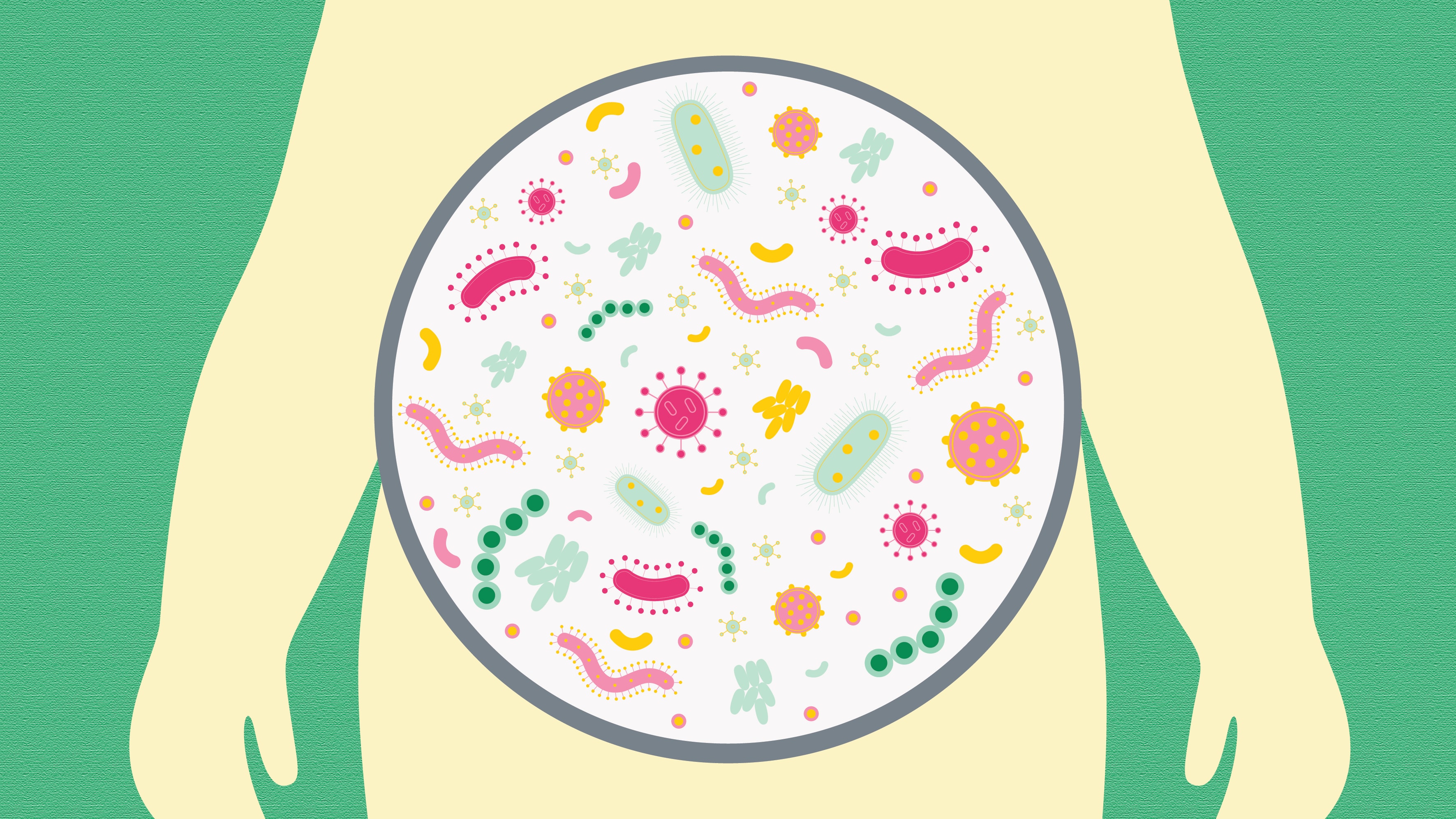COULD A POTENTIAL CAUSE OF OBESITY BE HIDING IN OUR GUT?

BY VELICHKA UZUNOVA – Obesity is a rapidly growing public health concern which affects more than 93.3 million adults in the U.S. This disease is influenced by multiple factors including sedentary lifestyle, improper diet and genetic predispositions. We rarely consider the microbe composition of our gut to be a potential cause of obesity, however, recent studies suggest that there could be an association between our microbiome and adiposity.
The microbiome is composed of a community of microorganisms that reside within our gastrointestinal tract. It begins to form at birth and is altered throughout our lives in response to different factors such variation in diet and the use of certain medications. The microbiome is unique to every individual, just like a fingerprint. Only one-third of the bacteria in the gut is found to be similar among healthy adults. Knowing this information, researchers are trying to utilize the microbes present in the gut to search for similarities and differences between people who are considered healthy and those who are obese.
One of the initial factors that led researchers to begin looking into the microbiome as a potential cause of obesity was a noticeable change in the types of microbes present in the gut after individuals who were considered obese lost weight. It was later discovered that patients who were obese had a different composition of microbes occupying their gut compared to those who were not obese. In a study performed on germ-free mice raised in a sterile environment, it was found that after the transplantation of the distal gut microbiota from normal mice, body fat increased by 60% within two weeks. The study also noted that there were differences in energy expenditure between lean and obese mice. These findings suggest that the microbes present in the gut can affect how energy is utilized within our bodies and this in turn affects adiposity.
There are five predominant populations of bacteria found in a healthy human microbiota, with Firmicutes and Bacteroidetes being the most abundant. Individuals who are obese have a lower abundance of the Bacteroidetes species within their gut microbiome composition and an increase of the Firmicutes species. Similar results were found in studies that observed the gut composition of obese children. Additionally, individuals considered obese are found to have a lower overall microbiome diversity. Based on the knowledge we have so far, it is evident that there is a difference in the gut composition between healthy and obese individuals but why is this significant? In what ways do these minute organisms that span the gut contribute to one of the most health-concerning diseases? Bacteria in the gut are found to play a role in the digestion of food and the extraction of energy. Some complex carbohydrates and plant polysaccharides are difficult to digest and are broken down with the help of small bacteria which occupy our gut. The microbes help to digest larger compounds into short chain fatty acids (SCFA). When SCFAs are absorbed, they can alter the pH of the colon and this has an effect on the populations of microorganisms that thrive. Three types of SCFAs produced are directly related to the cause of obesity.
Over the past decade, our gut microbiome has proven to be an active area of research which allows us to gain insight into possible links between obesity and the microbes that are present in the gut. The correlation between obesity, genetics and lifestyle are of great complexity, however, the microbiome of an individual is tangible. If a direct relationship is found, physicians could use the microbiome as a possible area of treatment for patients dealing with obesity by simply altering dietary components. Furthermore, they could help preserve and diversify the healthy bacteria while limiting the types which predispose a patient to becoming obese.
